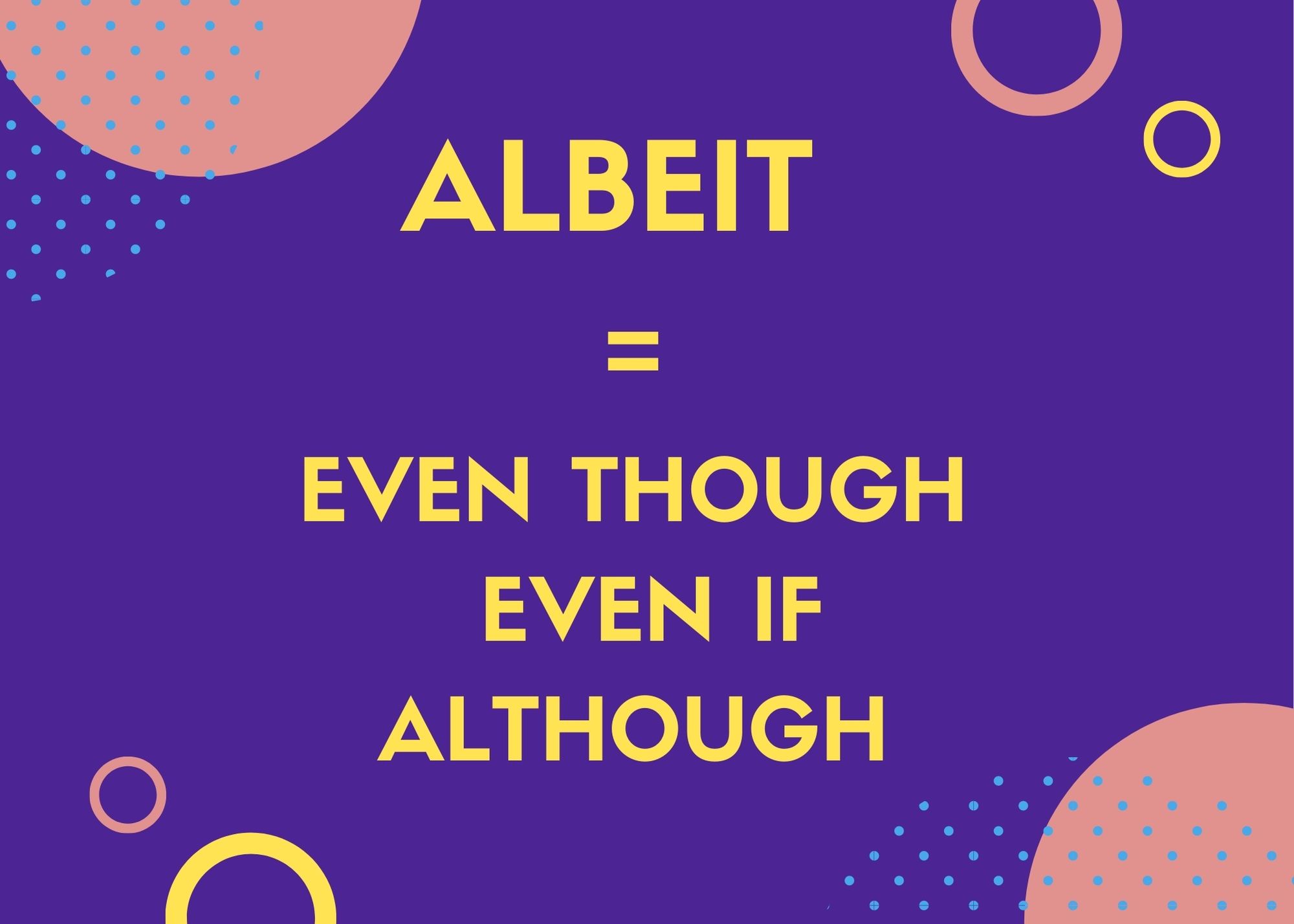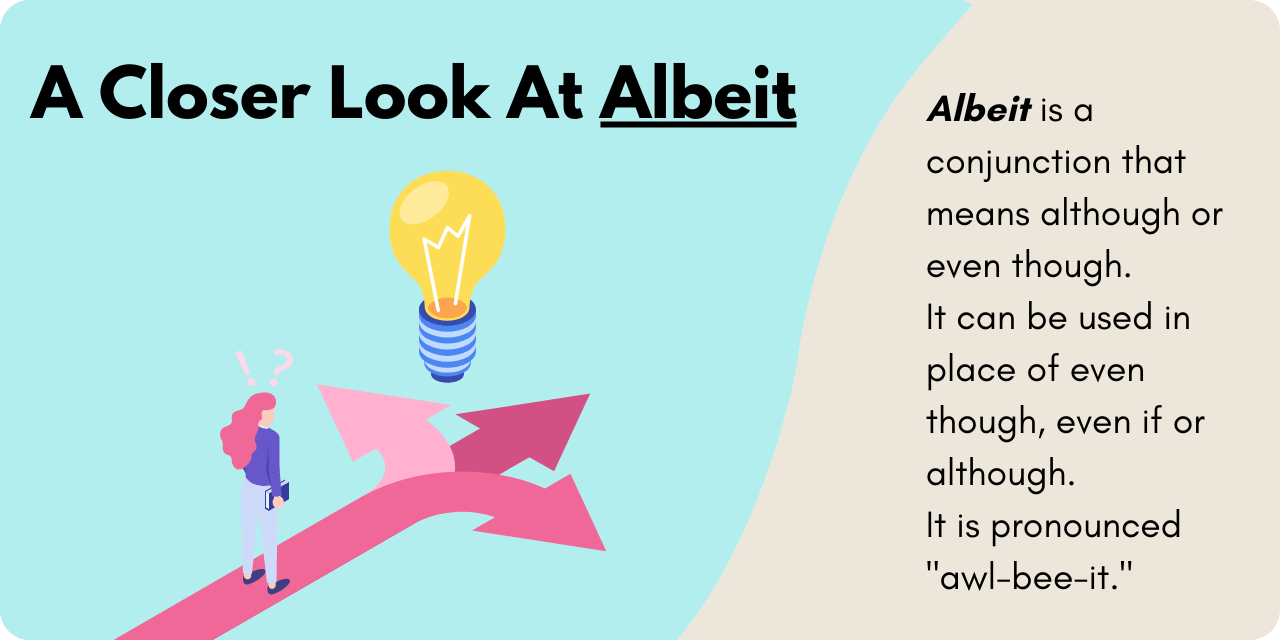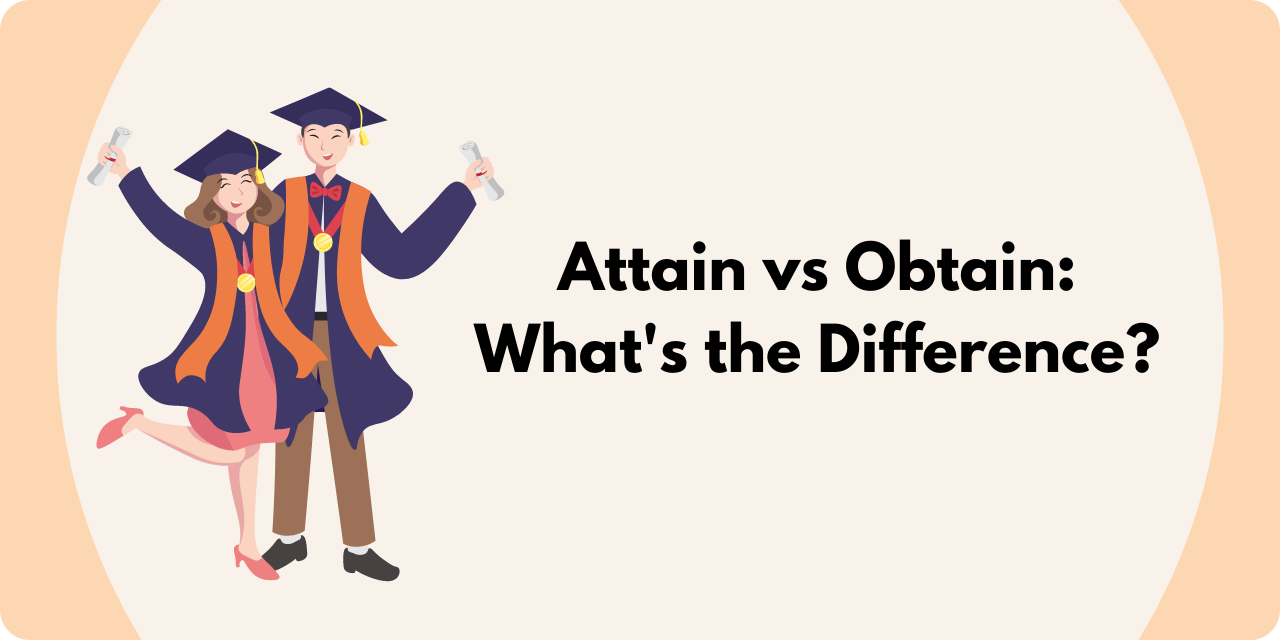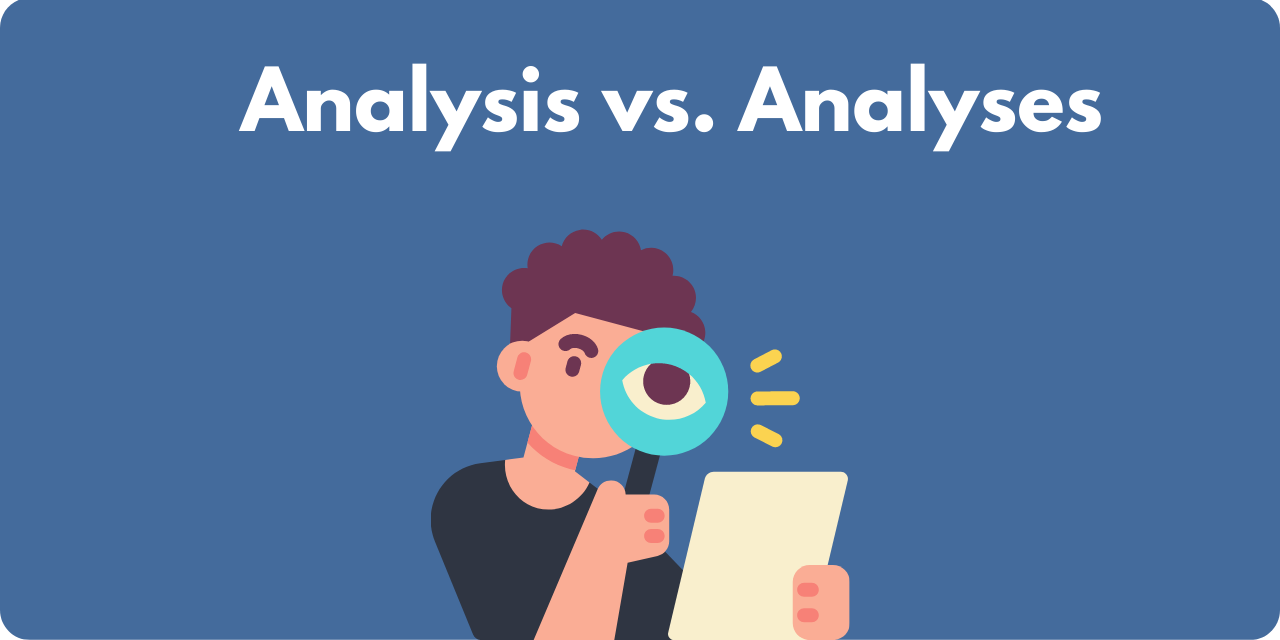Updated 31 August, 2021. Albeit is an interesting word that can be heard today from time to time. If you wish to add a bit of colour and flair to your writing or speech, adding it could certainly do that. But first, let’s learn a few facts about this old conjuction. What IS Albeit?
- Albeit is a conjunction that means although or even though.
- It can be used in place of even though, even if or although.
- It is pronounced “awl-bee-it.”
- You can not use albeit to introduce an independent clause (the way you would with although).

A Bit of History
The story of Albeit begins sometime in the 1300s. The earliest example can be seen in a Middle English entry from sometime before 1325 in a ground-breaking publication called Statues of the Realm (a compilation of English law.)
“Also þerase man rauisez womman … mit strenkþe, albehit þat heo assente afterward, he sal habbe þilke iugement þat his iseid bifore”
For a while, it seemed to be somewhat forgotten and was noted as an archaism by H.W. Folwer in a 1925 publication of A Dictionary of Modern English Usage. Yet there seemed to be somewhat of a resurgence during the second half of the 20th century, and today the word is used sporadically.
Albeit combines the conjunction “all,” the verb “to be” and the pronoun “it,” to initially mean “though it is true that” (a meaning that pretty much remains true today). The word is commonly cited to be a perfect synonym of although. However, at a closer inspection, one can notice a slight difference. While albeit combines a conjuction, a verb and a pronoun, although does not. In fact, the phrase “although it be” would be a better equivalent.

Using Albeit
As stated earlier, this archaic word is a conjunction (not to be confused with a conjunction adverb) and serves to connect clauses. The safest way to incorporate it is to use it to introduce a concessive clause. A clause is concessive when it expresses something that contradicts the information presented in the main clause. For example:
Her work was always excellent, albeit never on time.
Another function of albeit is to introduce a subordinate clause. However, it can be a bit clunky and is an instance where although and even though would be a better fit. The one thing that you can not do with it, as opposed to with although, is introduce an independent clause. For this reason, albeit and although are not always interchangeable.
The family discussed taking a cruise, albeit the cost made it impossible.
The family discussed taking a cruise, although the cost made it impossible.
Here is an example of albeit being used in a poem “Time Out,” published A Witness Tree, a 1942 collection of Frost’s poetry:
It took that pause to make him realize
The mountain he was climbing had the slant
As of a book held up before his eyes
(And was a text albeit done in plant).
Synonyms of Albeit
Here are a few synonyms of albeit:
- although
- as much as,
- notwithstanding,
- though,
- when,
- whereas,
- while,
- whilst (mostly British)
So in summation, now that you know what it is, feel free to add this archaic, albeit persistent, word to elevate your speech and writing!
—
Want to sharpen your business writing skills? Discover our acclaimed online courses at syntaxtraining.com






